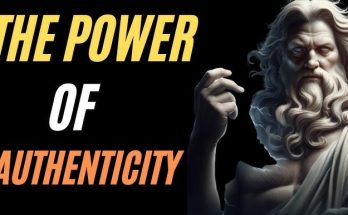Finding success in business often hinges on more than just hard work and a great product. Behind many thriving entrepreneurs and growing companies is someone who offers perspective, guidance, and an objective voice of experience—a business coach. While the idea of hiring a coach might seem like something reserved for executives at massive corporations, it’s actually one of the most valuable resources for business owners at any stage. Whether you’re just launching your startup or trying to scale an established company, a good coach can help you refine your vision, overcome challenges, and make better decisions.
The process of finding the right coach, however, isn’t always straightforward. Unlike hiring an employee, where job descriptions and qualifications are clearly defined, coaching relationships are more nuanced. A business coach isn’t there to tell you what to do or to run your company for you. Instead, they act as a sounding board, offering strategic advice, accountability, and sometimes a healthy dose of tough love when needed. Because of this, the personal connection matters as much as their professional credentials. You’re not just looking for expertise—you’re looking for someone whose communication style complements yours and who understands your goals.
Before you even begin your search, it’s important to get clear on why you want a coach in the first place. Are you struggling with leadership? Do you feel stuck in your business growth? Are you facing challenges with team management or scaling your operations? Knowing what you’re hoping to get out of the relationship will help you narrow down candidates who specialize in the areas where you need the most support. Some coaches focus on mindset and personal development, while others bring deep expertise in marketing, sales, or finance. Clarifying your needs can save you time and ensure a better match.
Once you’re ready to begin looking, there are several ways to approach it. Referrals are often the most effective. If you know fellow business owners or belong to entrepreneurial networks, ask if anyone has worked with a coach they recommend. Personal testimonials carry a lot of weight, especially when they come from people facing similar challenges. Professional directories and platforms that vet coaches can also be useful, though it’s wise to go beyond surface-level profiles. Don’t hesitate to request a consultation, review their background, or even ask to speak to past clients.
When evaluating potential coaches, focus not just on their resume but on how they approach problems. A good coach doesn’t rely on canned advice or one-size-fits-all solutions. Instead, they ask insightful questions that challenge your assumptions and help you see things differently. For example, if you’re constantly overwhelmed with day-to-day operations, a skilled coach won’t just suggest hiring help. They’ll dig deeper, asking what systems you’ve built, how you prioritize your time, and whether your business model supports sustainable growth. The goal isn’t quick fixes—it’s to help you think more strategically.
Chemistry is another crucial factor. Because coaching involves honest conversations and vulnerability, trust is essential. During an initial meeting, pay attention to how the coach listens and responds. Do they interrupt or talk over you? Do they seem genuinely curious about your business? Do they challenge you in a constructive way, or do they offer superficial encouragement? A productive coaching relationship balances support with accountability. You should feel both inspired and pushed to grow.
Once you’ve found the right coach, getting the most out of the relationship requires commitment on your part. Coaching is not a passive experience. It’s an active process that involves reflection, experimentation, and follow-through. Come to each session prepared with updates, challenges, and questions. Be open about your fears and uncertainties, and be willing to hear feedback that may not always be comfortable. The best insights often come from confronting what you’ve been avoiding.
For example, one founder might realize that their reluctance to delegate stems from a fear of losing control—not a lack of capable team members. Another might uncover that their sales plateau is less about marketing tactics and more about an unclear value proposition. A business coach can guide you through these realizations, but only if you’re willing to do the inner work and take action on the insights gained.
Setting goals together can help provide structure to the coaching engagement. Whether it’s increasing revenue, improving team communication, or preparing to pitch investors, having a clear target makes it easier to measure progress. Many coaches also offer tools or frameworks, such as leadership assessments or strategic planning exercises, that can add structure to your sessions. However, the real transformation happens between the meetings—in how you implement changes, reflect on results, and come back ready to adjust course as needed.
Another benefit of working with a coach is the clarity it brings. Entrepreneurs often wear many hats, and it’s easy to get caught in the weeds or fall into reactive decision-making. A coach helps you zoom out, reconnect with your long-term vision, and make choices aligned with your values and goals. That kind of perspective is hard to maintain on your own, especially when you’re deep in the daily grind.
The coaching relationship doesn’t have to last forever. Some business owners work with a coach during a particularly intense phase—like a product launch, a leadership transition, or a funding round. Others maintain an ongoing relationship over years, viewing their coach as a trusted advisor. There’s no right answer; it depends on your needs, your growth stage, and what you’re trying to achieve.
Ultimately, hiring a business coach is an investment in your development as a leader and in the long-term success of your company. It’s a sign that you’re serious about growing with intention, learning from others, and pushing past your current limits. With the right coach by your side, the journey of entrepreneurship becomes not just more effective, but more fulfilling.




